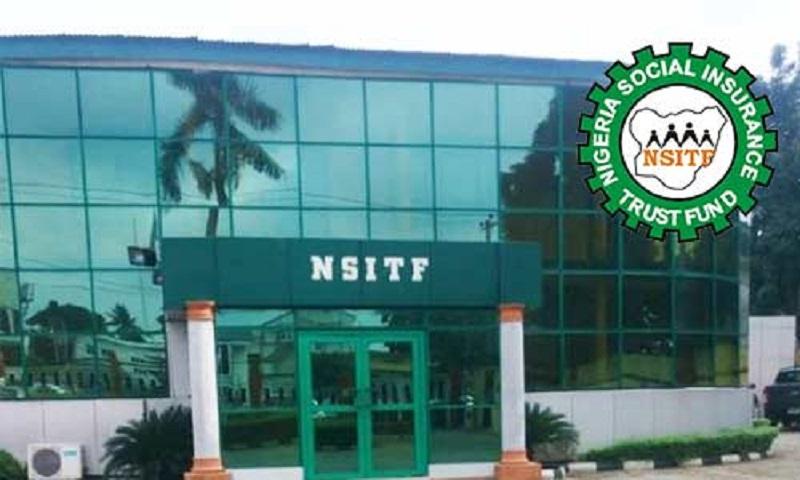Onyebuchi Ezigbo in Abuja
The Nigeria Social Insurance Trust Fund (NSITF) has said its major task was to ensure prevention of accidents through robust occupational safety and health(OSH) programmes in workplaces
The Fund said payment of claims and compensations does not alone measure the success of the organisation, adding that prevention of accidents was the first process in Employees’ Compensation scheme.
The Fund offered the explanation through its Executive Director, Finance and Investment, Adegoke Adediji , while receiving members of the Nigeria Council of Registered Insurance Brokers (NCRIB) on behalf of the Managing Director of the NSITF, Maureen Allagoa.
“The prevention of accidents through robust occupational safety and health(OSH) programmes is the first step in the processes of the Employees’ Compensation. The payment of claims and compensations is therefore inversely proportional to this,” he said.
A statement signed by the NSITF General Manager, Corporate Affairs Nwachukwu Godson, quoted
Adedeji as having made the clarification following some misconceptions about the mandate of the NSITF by a section of the media.
Adedeji, said effective occupational safety programmes reduces workplace accidents thereby cutting down on amount paid as claims and compensations.
“Measuring the progress of the NSITF by the number of claims and compensations paid is a very poor grasp of our mandate and operations. By ECA 2010, occupational safety and health is in inverse proportion to claims and compensations.
“When the occupational safety and health programmes(OSH) are top notch and producing results, the rate of workplace accidents that trigger claims and compensations declines. When OSH is not active, the reverse becomes the case.
“A well-managed NSITF primarily seeks the reduction of workplace accidents. This is the first step our management takes through a robust pursuit of occupational safety and health programmes. But if accident occurs, we follow up with rehabilitation. Then payment of claims and compensations, where necessary.”
He said the NSITF had been discharging all obligations on the payment of compensations to employees and their dependents for death, injury, disability arising out of or in the course of employment.
“We rehabilitate those who suffer workplace disabilities. In fact, we have a case in hand where we’ve paid close to N70 million at N1.3 million every month and another where the Fund pays about N1.5 million every month and will continue paying till the last child is 21 years of age.
“But while we do this, we intensify accident prevention programmes, even collaborating with other agencies and relevant stakeholders to emplace occupational safety and health(OSH) standards in all workplaces enrolled with the Fund.
“This is the charge of our active OSH department in our 57 branches and 12 regions across the country,” he said.
Adedeji, said the current management has a clear roadmap for the future of the Fund, stating that the NSITF was changing with times in terms of rules and operations.
He further assured the Council of Registered Insurance Brokers that the NSITF would consider its request for collaboration, adding that both organisations have similar roles in the world of work.
The statement said the President of the NCRIB, Babatunde Ogunlade, had commended the NSITF for expanding the reach of social security services in the country.
He explained that the visit was to seek areas of partnership and collaboration between the NSITF and a vibrant community of registered insurance brokers across the federation,
Ogunlade, said the two organisations have a common goal of securing the social security and well-being of all Nigerians.
He said, “We must mention that the NSITF has done very well. Your operations are getting noticed, and people are beginning to see the need to comply with you and understand the essence of the Employees’ compensation in the life of workers.
“What we bring on board is collaboration. We are far reaching. We have over 600 corporate bodies. We have over 15,000 members. We can collaborate and bring more companies, more money. But you propose a certain percentage we can earn by helping to do the work.
“We can bring in an aggregate of 30 to 50,000 small corporates, they don’t have to be limited, everybody suffers the risk of disability once you have an employee, even if it is two-member employee.
“More SMEs are coming up. The large corporates are things of the past, they will continue to dwindle, except in government agencies. The small corporates are coming up. We will collaborate in this area. Bring brokers on board, and we help you straighten the rough edges and bring in more SMEs into the net.”
Meanwhile, the Kano State Government has declared that its zeal and commitment to the welfare of the Kano workforce and citizenry have similar objective with the Employees’ Compensation Scheme of the NSITF.
The Kano State Head of Civil Service, Alhaji Abdullahi Musa, made the declaration while receiving an advocacy team from the Kano Branch of the NSITF led by Haruna Mohammed.




